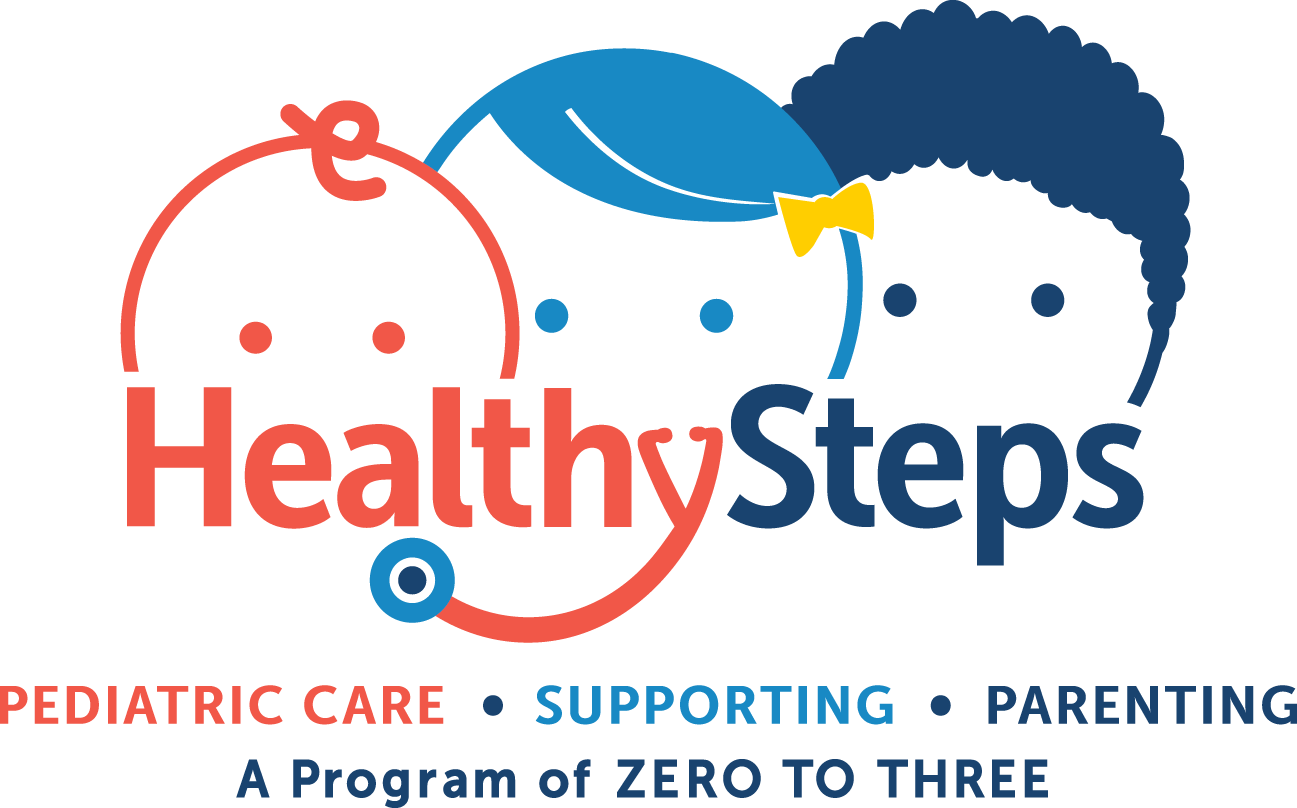Partner Spotlight: Healthy Steps
Science shows that 80% of brain development occurs by age three, making the first few years of a child’s life critical to their health and future well-being. But often times, these years are overwhelming for parents and caregivers as they face challenges integrating a new child into their lives. These challenges have been intensified by the current pandemic.
The Children’s Home Society of NC’s (CHS) HealthySteps, a program of ZERO TO THREE, provides parental and family support to help ensure the healthy development and school readiness of babies and toddlers. This support begins at the first newborn visit when a HealthySteps specialist meets with the family to determine the kinds of support and services they need. CHS has approximately 300 staff and provides services to all 100 countries in NC in some capacity with an emphasis on lower-income communities.
While the COVID-19 pandemic has slowed HealthySteps pace toward its goal of serving more than 1 million young children and families by 2032, the agency is proud it was able to quickly adapt to continue providing services to families. “We had to figure out organization-wide how to continue to serve families and keep our staff safe,” says Sebrina Cooke-Davis, Ph.D., Parent Education Program Supervisor for CHS.
The HealthySteps staff had already begun working from home before Gov. Cooper issued the statewide mandatory shelter in place order. “Our agency letting us know that our best interest came first allowed us to concentrate on how we could best alter our work to meet the challenges and interests of our families and we were able to figure out very creative ways to stay connected with our families while working remotely,” says Dr. Cooke-Davis.
Dr. Cooke-Davis acknowledges HealthySteps has not been able to serve as many families as they were pre-COVID, but both she and HealthySteps Specialist Meghann Wilkens, MSW, stress how important their work has been during the pandemic. “What I’ve seen consistently with families is they are stressed,” says Dr. Cooke-Davis. “We have always serviced a lot of families who have parental stresses, but COVID has exacerbated that a bit. Families are looking for ways to connect and they are feeling a bit of isolation, which on top of the stresses of a pandemic and being at home with children all the time is a bit much for many of them.”
“The level of isolation has really increased among families,” Wilkens echoes.” I know many of my families with newborns and little babies don’t feel comfortable even seeing their own parents. They’re worried about keeping everyone safe. They’re frightened to go out and for good reason; COVID is very scary. But it’s also very isolating and I’ve seen an increase in mental health issues for moms. Their anxiety is through the roof. It’s always been there, but it’s definitely been amplified by COVID.
“Housing insecurity has also gone up and housing resources are definitely needed now more than ever,” continues Wilkens. “Lots of people were laid off due to COVID, and there are very few places hiring for positions that require just a high school diploma. Unemployment has been a new challenge for many of my families.”
In addition to dealing with their families’ increased stresses, the HealthySteps team has also had to cope withtheir own stresses due to COVID. Dr. Cooke-Davis says they meet very often to make sure they are staying connected. Additionally, CHS is offering COVID leave and FMLA leave for staff who may need it. They have also adjusted schedules as needed to make sure they are meeting the individual needs of staff.
“CHS has been beyond supportive of its employees and our mental health,” says Wilkens. “There have been plenty of agency-wide meetings just to have that sense of community. This has been very nice because many of us are feeling somewhat isolated just as our parents are feeling. The HealthySteps peers meet multiple times a week as a large group and most of us have also started to meet in smaller cluster groups. It’s really been great to have that camaraderie and to be able to check on everyone, to see if there are any barriers with reaching patients in the practice, and to see how we can support each other.
“CHS has also really advocated with us in our practices to help get remote access to medical records for the HealthySteps specialists who did not have this access and would have been limited in their ability to contact families and follow their caseload. This allows us to be more flexible with our families. We’re always around our phones so we have the ability to text families or to answer emails and to be that touchstone for them,” Wilkens continues.
“It’s really great to be able to provide this level of support and to be able to answer their questions: The baby spit up; is this normal? or The baby is crying more lately. We weren’t able to provide that level of support when we were in the pediatric office because either we were always running to the next room, or looking for that 5 minutes to just take a breather or write something down. It wasn’t easy to take a 30 minute or an hour phone call. I’ve really enjoyed being able to do that. Even though our numbers have shifted and they may not be as high in unique visits, I feel that our quality of service has definitely stayed the same, if not increased, for many of our higher-needs families. Also, by working from home, we’re getting to assist more in the referral process and follow up to make sure families were able to overcome barriers or actively problem solve for them.
.
“Now more than ever, there is resistance to having to seek out services,” adds Wilkens. “For example, with the housing assistance, you can access it once during this time and then not again, so some families are resistant or worried about taking it in case things gets worse later.” Wilkens also notes that due to fear of exposure to COVID, some parents are also hesitant to seek resources from organizations who do not offer contactless assistance.
Dr. Cooke-Davis and Wilkens encourage families to talk to other families and ask questions to decrease the likelihood of isolation. “Word of mouth is a great way to learn about resources” Dr. Cooke-Davis says. “If you don’t talk about it and ask other people, you won’t know.”
“Also, I would encourage families to be your best advocate and reach out to your support systems, the ones that want to take care of you and want the best for your children,” says Wilkens. “Be honest and say what you need and I’m sure the response will be positive.”
Dr. Cooke-Davis says it has been pretty amazing to see how her team has adapted and been able to continue to serve families “in the midst of all the stresses that are going on. Our funders, Get Ready Guilford, and all of our partners have been very supportive in helping us figure out how to best support families during this time,” she says. “It’s been a challenge because we’re not face to face, but we have definitely been able to impact families as we’ve seen from the many success stories we’ve had in connecting families to resources to help them meet their basic needs during this very difficult time.”


